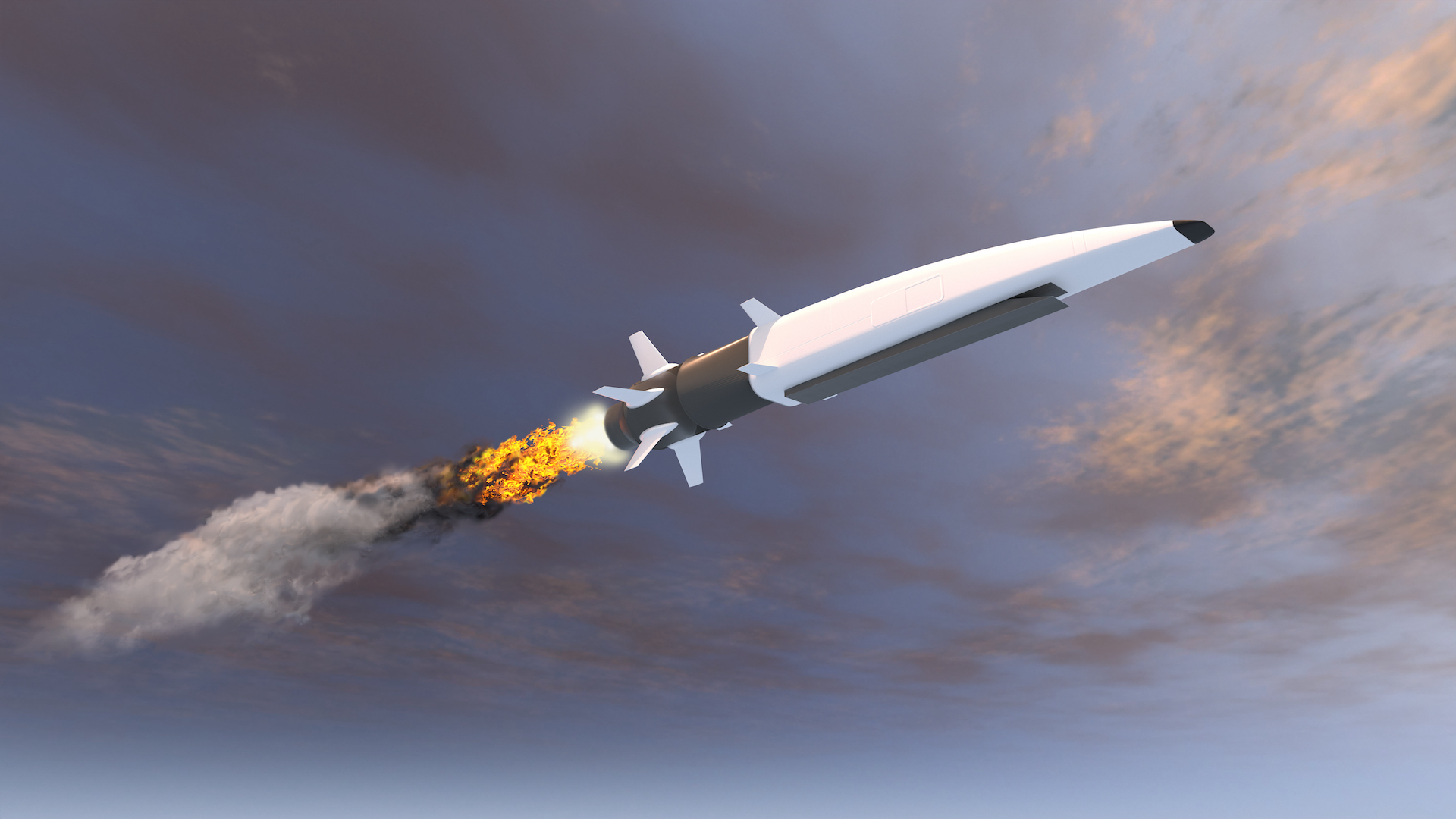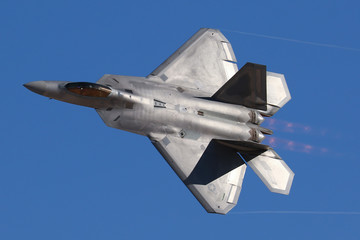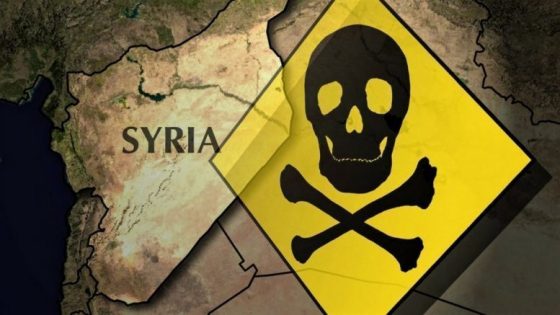This Is What You Should Buy in 2025
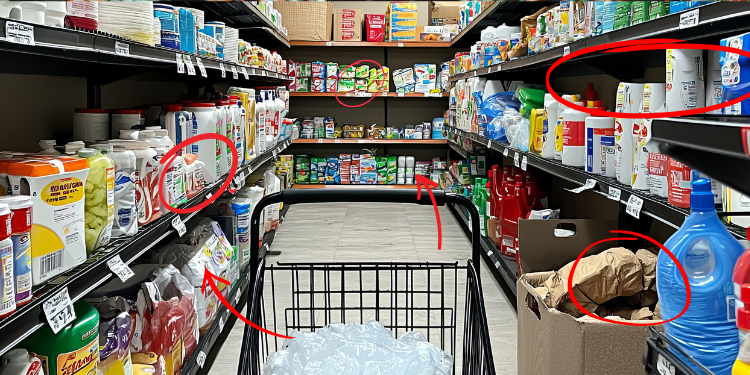
As preppers, we’re all used to buying a few things most people don’t bother with. Water purification systems, for example. Radio equipment. Hand-powered tools. Then of course there’s the little things we do every time we go to the grocery store, like buying a couple of cans more than we need for that week and adding them to our stockpile.
Prepping is all about self-reliance and being able to live without relying on stores, the utility grid, and all the other things modern society provides. But while we have access to those stores there are plenty of things we can buy that will improve our chances of survival when the time comes.
I’ve certainly been buying prepping supplies all year, but 2024 is on the downhill slope now so I’m already thinking forward about what my priorities should be in 2025. More of the same? Maybe.
I think it’s worth putting some thought into it, though. After all, the situation is changing and the world is more unstable than it’s been any time since the Cold War. Is that going to affect what preppers should be buying? Here are the items I think should be our priority purchases for next year.
Guns and Ammo
There’s a strong chance 3-letter agencies might target gun owners due to their political affiliation, and if that happens the Second Amendment will come under even more pressure.
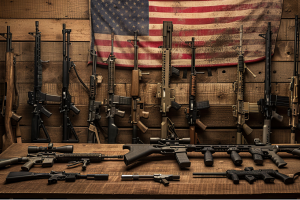
That means one of the first things you should consider buying in 2025 if you don’t have one already, is a semi-automatic rifle.
Right now these are still legal in most states, but that could change if our next president manages to force through another federal “assault weapon” ban.
Many preppers already have a rifle like this; if you don’t, get one. They’re excellent for hunting small to medium game as well as for self-defense. Get one that’s chambered for 5.56mm NATO and feeds from standard AR15 magazines; it will be much easier to keep it supplied with weapons and ammunition.
So-called “high capacity” magazines are another thing to buy. Gun banners hate them and twelve states already have laws restricting magazine capacity. Magazines can get lost, and they’ll eventually wear out – and, without them, a modern firearm becomes a clumsy single-shot weapon. Buy as many good quality magazines as you can.
Related: Read This Before Buying a Gun
Don’t forget ammunition, either. It’s unlikely the government will manage to ban this, but the US has been suffering from intermittent ammunition shortages for years. These shortages tend to get worse when people are worried – so if a crisis is developing it’s likely the ammo shelves in gun stores will quickly empty.
If you want to be prepared stock up on ammo before everyone else decides they need to. And if you want to make sure you’re fully prepared you might want to take advantage of specialized training. The Special Forces Home Defense Academy offers comprehensive courses that can teach you how to protect your home and family effectively.
Power Generation
Our ancestors in the 19th century lived their entire lives without electricity. Many preppers have relearned the old skills needed to do that, and that’s a great idea – but if you don’t have to live without electricity, why would you want to?
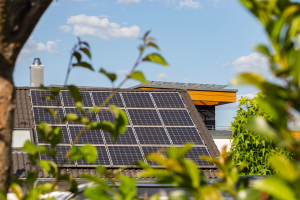 Being able to generate power lets you use refrigeration, which can preserve medications as well as food. It lets you have proper lighting; candles and oil lamps look great, but try doing any kind of intricate work with their light and you’ll soon be wishing you could flick a switch and get some proper electric illumination.
Being able to generate power lets you use refrigeration, which can preserve medications as well as food. It lets you have proper lighting; candles and oil lamps look great, but try doing any kind of intricate work with their light and you’ll soon be wishing you could flick a switch and get some proper electric illumination.
The traditional prepper way to make electricity is with a gas or diesel generator. These are effective and affordable, but they need fuel. In a long-term crisis, the fuel will eventually run out.
Luckily, technology is advancing, and in the last couple of years, solar power has become a viable option for preppers who want to generate at least some electricity. This device can generate endless power and you can build it your own at just a fraction of price you would pay for something similar but not as efficient.
One of the big drawbacks of solar panels is that they only generate electricity when the sun is shining, and most of us find it more useful to switch the lights on when it’s dark. Modern rechargeable batteries have finally reached the point where you can generate and store useful amounts of electricity during the day, then use it at night. Look at solar panels and battery storage solutions as a fuel-free way of keeping the lights on after the SHTF.
Food and Seeds
Personally, over the last few years I’ve been more worried about a short-term crisis – political unrest, another pandemic scare leading to lockdowns, that sort of thing.
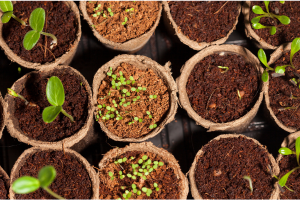
Now, with the sharp rise in international tensions caused by Russia’s invasion of Ukraine and China’s threatening moves towards Taiwan, I think the risk of something more permanent happening has also risen – something society isn’t going to recover from anytime soon, like a nuclear war.
With that in mind, I think it’s a good time for preppers to focus on long-term food supplies.
It’s still important to stockpile the usual staples – flour, beans, rice and canned goods. In the worst-case scenario of a nuclear attack you’ll need food supplies to last you while you shelter from fallout, but that isn’t going to be enough. When the radiation level falls, stores aren’t just going to open again and start selling food.
The whole food production and distribution system will have collapsed, and it won’t come back for years – maybe ever. If you want to survive you need to be able to grow your own food. That means having enough food stockpiled to last you until your first crops are ready, and it also means having heirloom seeds to grow those crops from.
Don’t count on anything you already have planted surviving; it could be killed by fallout, or stolen by desperate (and probably doomed) refugees while you’re sheltering. Buy the seeds you’ll need to start over.
Medications
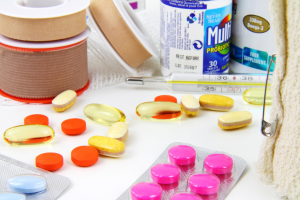 The US has the largest pharmaceutical industry in the world – but a lot of American-made drugs rely on chemicals imported from China.
The US has the largest pharmaceutical industry in the world – but a lot of American-made drugs rely on chemicals imported from China.
With international tensions they way they are, the supply lines our drug factories rely on aren’t as stable as they once were.
In a major crisis China is one of our likely enemies, and it’s safe to assume they’ll stop selling us ingredients for medications.
That means we need to stockpile essential medications now, while they’re still available. Look at buying painkillers and other over the counter medications. Buy antibiotics from aquarium suppliers.
Another thing to buy is books on traditional remedies; in a long-term emergency, being able to find and harvest medicinal plants could be vital to survival. One that I have myself and totally recommend is a book called The Lost Book of Herbal Remedies II that’s basically showing you step-by-step how to make your own remedies.
Considering the current situation, these are the things I’ll be buying in 2025. Do you think I have any of them wrong? Is there anything I missed? Let us know in the comments.
You may also like:
 Never Store These Survival Items in Your Car
Never Store These Survival Items in Your Car
The Only Way to Communicate Off Grid in a Crisis (Video)
Worst 5 States for Preppers to Retire
5 Home Remedies for Diarrhea
DIY EMP-Proof Truck
How To Build An Electricity Free Fridge
Read the full article here



